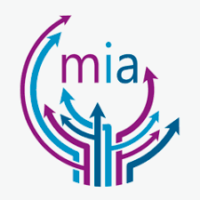Parenting with a Disability

By: Sharon Langer, Esq.
I came across an interesting webinar on the Vera Center for Victimization and Safety website. It addressed an issue rarely talked about, yet really important, as we strive for an inclusive system for victim/survivors. Many victim/survivors of domestic violence with disabilities, still face barriers within the family court and child welfare systems. When a parent is a victim/survivor with a disability, the odds of losing custody of their children increase exponentially. As of 2012, 35 states still listed disability as grounds for termination of parental rights even without evidence of abuse or neglect.
The webinar did some historical research and found out that:
For many years the US promoted involuntary sterilization and 30 states legalized compulsory sterilization of those perceived as “socially inadequate” (Buck v. Bell, 274 U.S. 270, 1927). By 1970, more than 65,000 Americans had been sterilized.
Many states put restrictions on marriage. In 1974, 40 states still had laws forbidding people with disabilities, mostly intellectual or psychiatric disabilities, from marrying.
As of 1997, 33 states still had statutes limiting or restricting people with intellectual or psychiatric disabilities from marrying.
We are now 29 years after the passage of the ADA, and Buck v. Bell has never been overturned, and several states still have some form of involuntary sterilization laws on their books.
Unfortunately, even today women with disabilities contend with coercive tactics designed to encourage sterilization or abortions because they are deemed not fit for motherhood.
Unfortunately, our child welfare and family law systems are still operating with a bias.
Here are some startling statistics:
- Removal rates of parents with psychiatric disabilities are as high as 70-80%.
- Removal rates of parents with intellectual disabilities are as high as 80%.
- More than two-thirds of dependency statutes include disability as grounds for termination of parental rights (National Research Center for Parents with Disabilities)
In every state, disability may be considered when determining the best interest of a child for purposes of a custody determination in family or dependency court.
As we begin to discuss this issue what can be done?
Here are some suggestions from the experts that can improve the outcomes in these systems for victims with disabilities:
- Ensure accessibility in physical space, programs and services and, and all forms of communication.
- Promote understanding of the experiences of victims with disabilities, including discrimination in custody matters.
- Ensure that victims with disabilities in these court systems are being appropriately represented by attorneys trained in disability.
If you would like to discuss further, you can reach me at sharon@justdigit.org.













